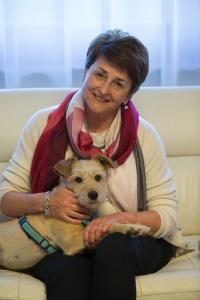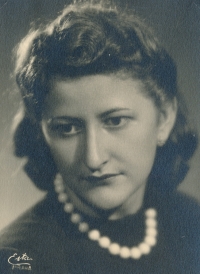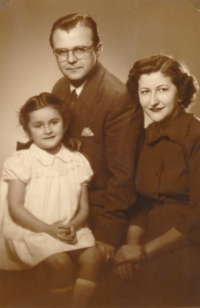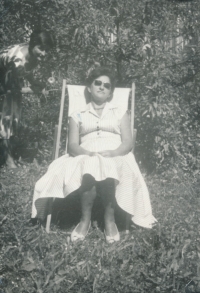As a child, I hated communists with all my heart

Download image
Eva Valentová, née Čermáková, was born into a family of commercial engineer Jiří Čermák on 23 May 1947. He worked at Kooperativa for years, and was dismissed on 25 February 1948, the day of the communist coup, because he allegedly sided with so-called agrarian fascism. Jiří Čermák was arrested in 1953 and sentenced to four years due to his alleged anti-government activity. He eventually served three years in Jáchymov, the majority of of which he spent in the dreaded radioactive uraninite sorting plant. In 1962 Eva Valentová began to attend electrical engineering high school in Prague at Na Příkopě. She successfully graduated in 1966. Due to a poor cadre profile and in order to help out her parents financially she immediately took up a job at the Energy Research Institute. This is where she met her future husband who she married in 1968. The couple had two children. Due to a shortage of residential space, the witness and her children lived in a detached house in Southern Bohemia and only in 1982 the family managed to move in together. Just a year later, the marriage fell apart. Until the Velvet Revolution, Eva Valentová worked at the Research Institute for Material Protection. After 1989 she left the field to teach German and French. She also worked as a tourist guide for Čedok. She retired in 2009. She currently lives in her family house in Southern Bohemia, staying stays with her son in Prague-Dolní Počernice occasionally. She has four granddaughters.









